Picture this: you’re playing Overwatch competitive, and something goes wrong. Your team wiped at a crucial moment in the match, and your opponents took the point. Your teammates are starting to run around like headless chickens, and this time it was just too much. You feel the anger surge and you end up pounding your fist on the table, or typing abuse at people in the game. Maybe you even become unpleasant towards your friends hanging out with you in voice chat. It’s finally happened. You’re going on tilt! You’re so mad, you’ve started to actually play worse!
So what do you do? How do you deal with anger in Overwatch? Here are some tips to help you avoid going on tilt and keep you playing at your best.
Tilting and Anger in Overwatch
“Tilting” or “going on tilt” is a term that apparently originates from Pinball and is often used in Poker. In the Poker context, it refers to a player doing something in-game that is maybe not situationally appropriate because they’re frustrated or confused, possibly due to a losing streak. The gaming community has adopted this, particularly in competitive games like Overwatch or MOBAs.

For some background, I’ve always been a pretty calm gamer, even in my competitive days as a teenager. However, over time I’ve become less tolerant of losses and find myself getting more easily frustrated. I personally don’t take it out on teammates, but I’ve had friends I play with who will lash out and blame everyone around them for a loss or even just a bad team fight. I’m a firm believer that people who do engage in various forms of verbal abuse in a game don’t actually want to be abusive. They just find it hard to control themselves when they’re already in the angry zone. Sure, there are exceptions to this rule, but who really wants to “tilt”?
If we don’t want to tilt, why do we do it? And can we stop it? There’s a bunch of science behind the mechanisms of anger, but the fact is it’s only natural to feel frustrated when something we’re invested in doesn’t go as well as we want it to. This is particularly prevalent in competitive games. But you can overcome it! Sort of.
Take Regular Breaks from Overwatch
We’ll get the obvious one out of the way nice and early. Every good gamer knows they should be getting up and stretching their legs every hour or so. However, you don’t need to walk away from your PC for this tip to help out. In Overwatch, just stop after an annoying match and take a few minutes to breathe and allow yourself to relax. This could mean watching some videos on YouTube, reading Reddit, or just not playing your next match for a few minutes.
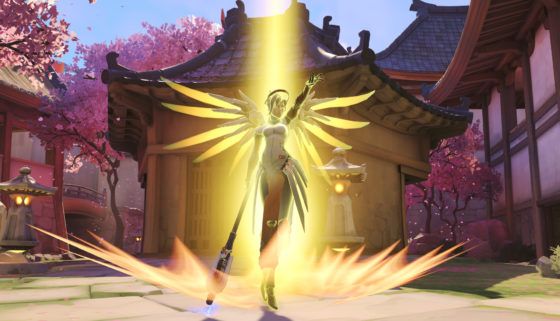
You could even take this one step further and get up to get a drink, come back, and try again. Anger mounts up over time. If you’re already starting to get frustrated, jumping into your next match could make you even angrier. You’re already at a higher base-level of frustration, and piling more potentially frustrating situations on top of that is just going to make it worse. Take a break and do something else, even if it’s just to alt-tab out and talk to someone. Break the cycle. This is also important if you find yourself on a losing streak. As we talked about in the previous Play of the Fortnight, set yourself a rule. If you lose more than a certain number of times in a row, take a break and come back to it later.
While you're up, change your scenery. Remove yourself from your gaming environment, even for a few minutes. Being somewhere else for a moment can help you snap out of that mounting angry mood. Sticking around will just tempt you to continue the behavior you're trying to avoid. If you choose to walk away, you temporarily leave behind the area that you associate with anger. Of course, I'm not suggesting abandoning your team halfway through a match. A short break, however, will do you the world of good!
While You’re Up, Get Some Exercise in!
I’m not just trying to instill healthy habits in you, but anger can make you feel like you suddenly have a lot of energy and nowhere to put it. This can lead to outbursts of yelling, fists pounding on tables, controllers going flying across the room, and a ton of other destructive behaviors. Why not take that energy and invest it into something productive and healthy?
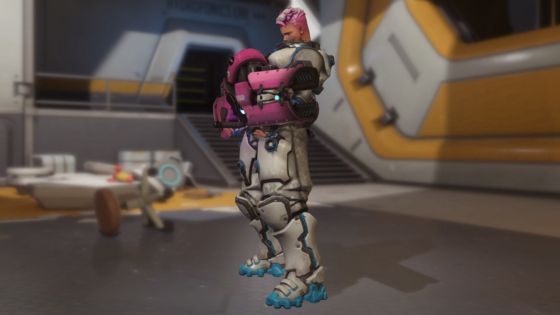
We, as gamers, often spend long hours sitting at our PCs or consoles being completely sedentary. Working out sounds an awful lot like “work.” It even has the word in its name! Because of this, gamers often don’t get enough activity in their day. If you’re really mad at a game, burning that sudden excess energy off in a positive way is great. You’ll increase your heart rate, improve your fitness and health, and probably even feel better afterwards.
I have an ulterior motive for this, however. Burning off that energy can actually reduce the anger as well. If you are lucky enough to have access to a punching bag, pounding on it for 10 minutes after you’ve had an awful game can make you feel so much better. I’ve done this myself after a rough match, and I was surprised to feel the anger flow out from me while I beat up the bag. Coming back to Overwatch and giving it another shot felt so much better, and I didn’t feel nearly as angry.
Feel Like Being Abusive to Your Teammates? Alt-Tab Out
If you’re one of those people who makes abusive comments to your teammates in games, and genuinely wants to stop, here’s a tip that a friend once gave me. You’ve just died because of a stupid mistake a teammate made in-game. You feel the words wanting to bleed out of your fingertips, but you know it’s not going to help. It’s only going to make you feel a tiny bit better.
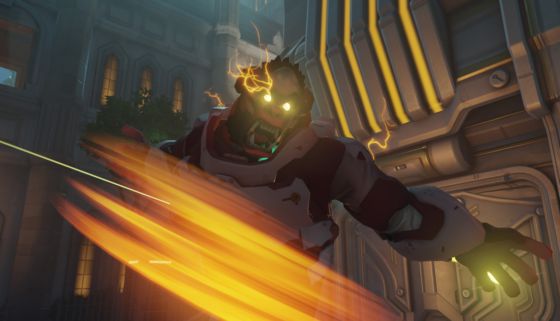
Alt-tab out of your game, and have a blank text document ready and waiting. Type everything you want to say to your teammate in there. Rather than subjecting your teammate to abuse, making them feel bad and possibly play worse, and risking getting your account banned, you’re putting those words somewhere no one else can see them. This has the added benefit of allowing you to review the words you typed later. You can analyze your behavior and maybe even start to reduce these negative thoughts because you can see they’re not productive.
If your teammates are the ones being abusive and you’re tempted to retaliate, stop. Mute them. Most games have this function. Reading their harsh words has probably gone beyond being helpful and is just serving to make you angrier or perform worse. If they see no response, perhaps they’ll even stop trying and will actually focus on the game instead!
Leave Voice Chat or Mute Abusers
If you’re in voice chat, particularly in competitive, get out of there quickly. Over time you start to notice “toxic” behavior, to use a buzz word, before it gets too bad. Once you see the signs of a team turning on itself, get out of there or mute the offender. And if you’re the one who’s starting to tilt, leave voice chat. If you want to stay in voice chat to hear the rest of the team, mute your microphone either in-game or in-line if you have the option. Or even go so far as to unplug it! Then you can yell all you like, but your team won’t be affected by your rage.
This sounds so simple, but it can make a massive impact. If the team is too busy focusing on someone audibly yelling at them, they will start to play worse. Removing yourself from that situation before it gets too bad is incredibly important, regardless of whether you’re the offender or the victim.
Use Your Anger as an Opportunity to Get Better at Overwatch
At the end of the day, you have to understand that every individual is different. While you might deal with a situation in a match one way, other people may not see it in the same light as you. Everyone has their own strengths and weaknesses. And even more simply: not everyone will have the information you have. You may see the flanker heading round to you as a support, but your tank might not have caught it. Without communication, how will your team know? And just because you think that something is the right action to take doesn’t mean you’re right. Try to keep all of this in mind as you play. Remember that another player will always play differently than you, and that’s okay.
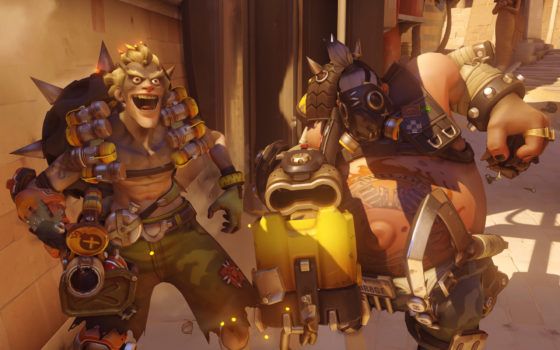
Instead of using bad gaming situations to fuel your rage, try to use them to analyze your own gameplay. This can give you many avenues for improvement. One great way to do this is to record your gameplay. OBS (Open Broadcaster Software) allows you to use a replay buffer to quickly hit a hotkey and record the last few minutes of a game. You can then watch the situation that annoyed you later, and identify what you could’ve done better. You are the only constant in games, and the only thing you can truly impact is yourself. Figure out what you could change about your own playstyle rather than torturing yourself over something another player you’ll likely never play with again could’ve done differently.
If you need to remind yourself of these things, invest in some post-it notes. Stick them around your monitor or desk so you can see them while you play.
Anger is Natural, But Don’t Take it too Far
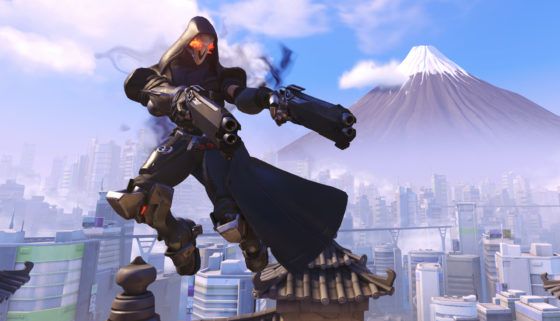
It’s important to remember that anger is normal. You’re playing Overwatch, a competitive shooter. Competition is inherently included, and of course you’re going to be mad if it goes badly. Don’t be too hard on yourself if you find yourself tilting often. Try to course correct, and over time it will get better.
If you find that you’re regularly taking your anger out on other players, however, and these tips haven’t helped, consider talking to your friends whom you play with. They know you well, and may be able to identify things that cause you to feel angry and help you. It may sound silly, but you deserve to have a happy gaming experience. And so too do your friends, or even the random players you meet in Overwatch.